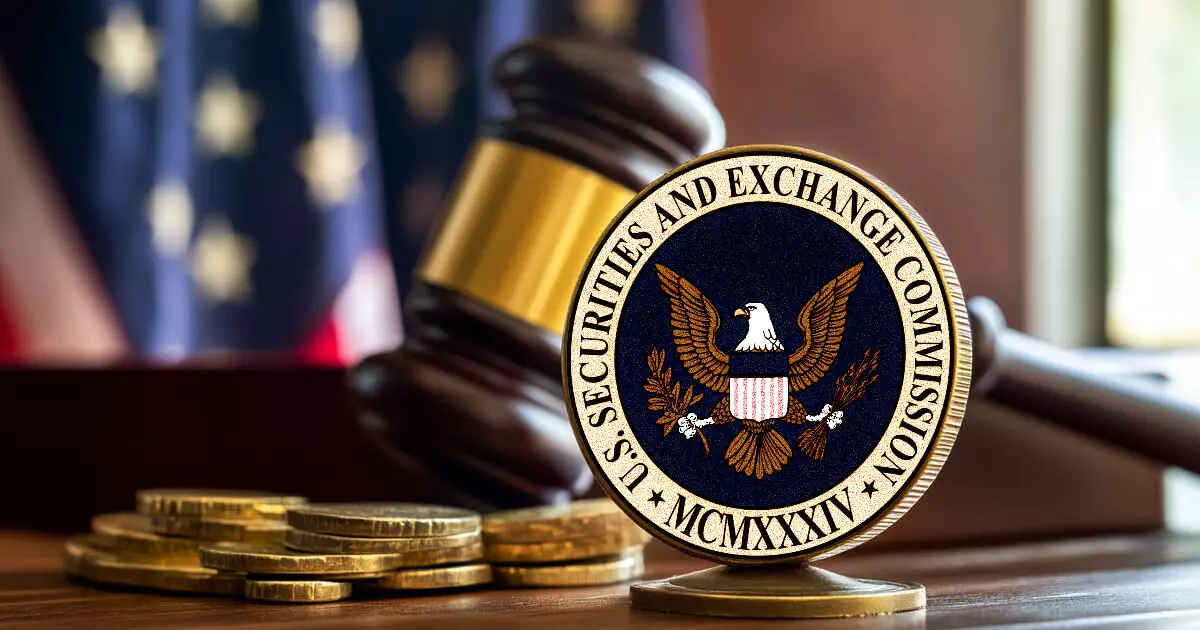On October 10, 2023, the U.S. Securities and Exchange Commission (SEC) brought charges against Cumberland DRW, a notable crypto market maker located in Chicago, for allegedly functioning as an unregistered securities dealer. The SEC’s complaint asserts that since March 2018, Cumberland has engaged in trading activities involving over $2 billion in cryptocurrencies that fall under the classification of securities. This regulatory action highlights a crucial aspect of the rapidly evolving crypto landscape: the necessity of compliance with federal securities laws, which are designed to safeguard investors.
Jorge G. Tenreiro, the acting chief of the SEC’s Crypto Assets and Cyber Unit, emphasized the agency’s stance, asserting that all securities dealers, regardless of operating within traditional or crypto markets, must register with the SEC. This statement brings to light the contentious debate surrounding cryptocurrency regulation and classification, especially in a market where many participants argue that tokens should be classified as commodities rather than securities.
The SEC’s allegations particularly revolve around Cumberland’s operations through its trading platform, Marea, and its telephonic trading methods. The crux of the SEC’s argument is that by treating the sale and offer of these crypto assets as securities, Cumberland was required to adhere to specific registration protocols to ensure adequate investor protection. Notably, Cumberland asserts that it has always positioned itself as a leading liquidity provider within the crypto ecosystem, further complicating its defense.
The SEC’s demand for permanent injunctive relief and the disgorgement of allegedly illicit profits raises substantial legal and operational concerns for Cumberland. The fines, prejudgment interest, and other penalties sought by the SEC could have far-reaching implications not only for Cumberland itself but for the broader crypto market, which is still navigating the murky waters of regulatory compliance.
In reaction to the SEC’s actions, Cumberland has publicly defended its operational practices. The firm contends that the SEC is suppressing innovation and curtailing the ability of companies to engage meaningfully within the blockchain and cryptocurrency spheres. Moreover, Cumberland argues that it maintains a robust compliance framework while adhering to all known rules and regulations, which it claims have been inconsistent and rapidly changing.
Interestingly, Cumberland points out that it has been in dialogue with the SEC over the past five years regarding its business practices. The firm emphasizes that the SEC’s current complaint is the first instance in which the specific transactions under scrutiny have been articulated, revealing a level of frustration from the firm regarding the ongoing regulatory engagement.
Cumberland’s response also references its previous experience, notably with the Commodity Futures Trading Commission (CFTC) in a 2018 market manipulation case it faced when Gary Gensler was the chairman. While this historical context illustrates a contentious relationship with regulatory bodies, it also serves as a reminder of the complexity involved in navigating the legal framework governing digital assets.
This latest enforcement action may reflect a broader trend where regulatory bodies are actively pushing for clearer delineation of operational boundaries within the cryptocurrency market. As firms like Cumberland DRW face increased scrutiny, the question of how cryptocurrencies are classified legally will likely remain a point of contention that could shape the future of trading activities in this space.
The ongoing situation with Cumberland DRW underscores the critical crossroads at which the cryptocurrency industry currently stands. As government bodies, particularly the SEC, ramp up their enforcement actions, companies operating in this space must brace for a structured and increasingly regulated environment. The implications of the SEC’s actions extend beyond the immediate case against Cumberland—they could herald a new regulatory era for the entire crypto sector, compelling stakeholders to adapt to a landscape marked by accountability, strict compliance, and an unwavering focus on investor protection. As the discourse surrounding the proper regulatory treatment of digital assets continues, the outcomes of these encroachments will significantly impact innovation and operational frameworks within the burgeoning field of cryptocurrency.


Leave a Reply